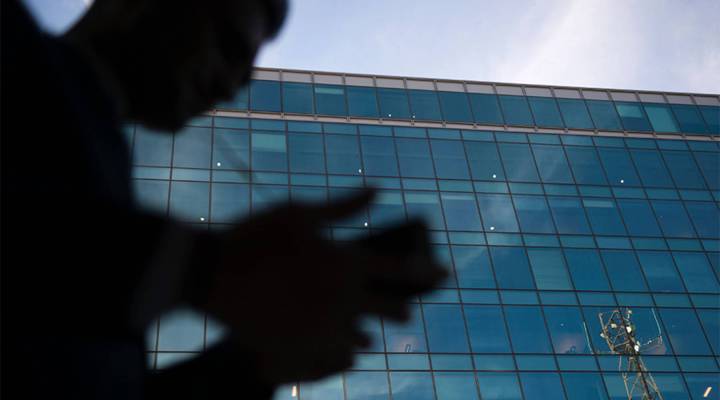
There’s tons of money in venture capital, as long as you’re a big company
There’s tons of money in venture capital, as long as you’re a big company

In 2018, venture capital firms invested $130 billion in private companies — an all-time high. Sounds like a thriving startup ecosystem, right? The movie industry similarly hit a new high in 2018 … because ticket prices were way higher and people paid more to go to a few big blockbusters. A similar thing happened with venture capital: Firms invested a lot of money in a few big blockbuster companies, like $1.3 billion in Fortnite maker Epic Games, or they made big investments in so-called “unicorn” companies with billion-dollar valuations, such as Uber or Airbnb or Pinterest. How is this pattern changing the landscape for smaller startups? Molly Wood talks with Bobby Franklin, president and CEO of the National Venture Capital Association, about where all the money is going. The following is an edited transcript of their conversation.
Bobby Franklin: We saw $130.9 billion invested in 2018 but unicorns, which are companies that are already valued at at least $1 billion, received more than a third of that, some $44.5 billion of that.
Molly Wood: Right. That is the question: Is it a situation where the rich get richer? Are you seeing reduced investment in early-stage companies or brand new startups?
Franklin: Unfortunately we have seen a decline, particularly at that angel and seed stage level. We’ve seen fewer companies get funded and I think that’s the concern that we all have. But venture capital is very resilient and it also is very long term. So whatever you see in one-year statistics, when you look at it over a ten-year period, which is usually the life of a venture capital fund, you start to see the ebbs and flows over the long haul.
Wood: Is it possible that a large ebb will occur when one of these big unicorns simply cannot return its value? Because we’re seeing some really big valuations in companies that don’t necessarily have proven business models.
Franklin: Well that’s true, and we obviously see a lot of these larger companies that are, we believe, at least they’re making all the signals like they may try to go onto the public markets in the coming year. Obviously they can’t do it right now, with the government shutdown, which is problematic. But if some of those companies do make it into the public markets, and they have success in the public markets, I certainly think that’s a good sign for everybody else in the entrepreneurial ecosystem. I wish that we had a crystal ball to know whether or not we’re at a new normal or whether we will see some cooling off in the overall amount of capital.
And now for some related links:
- Out of that $130 billion invested in 2018, about $3.5 billion went to food and grocery delivery companies. On Tuesday, a former investment darling announced it’s going under: San Francisco-based Munchery raised about $125 million in venture funding, but if there’s one business that just never seems to get cheaper and easier, it’s delivery. Granted, Munchery was also making food in-house and sending out full meals — and then UberEats, Postmates and DoorDash came along and did the same thing with food from existing restaurants. So Munchery going under isn’t necessarily a sign that the food delivery apocalypse is upon us but there is a shakeout happening.
- There may not be a ton of hope for the wave of meal-kit delivery services that came in along with Blue Apron and Hello Fresh. Some of them are getting smart with specific diets like the paleo meals from Sun Basket. But remember when “The New York Times” announced a meal kit delivery service along with a service called Chef’d? Now that was a bubble, and the Times meal-kits are gone. Restaurant and grocery delivery are still chugging right along, though. Perhaps you either know what you want to cook or you want it done for you, but there’s no in between.
There’s a lot happening in the world. Through it all, Marketplace is here for you.
You rely on Marketplace to break down the world’s events and tell you how it affects you in a fact-based, approachable way. We rely on your financial support to keep making that possible.
Your donation today powers the independent journalism that you rely on. For just $5/month, you can help sustain Marketplace so we can keep reporting on the things that matter to you.

















